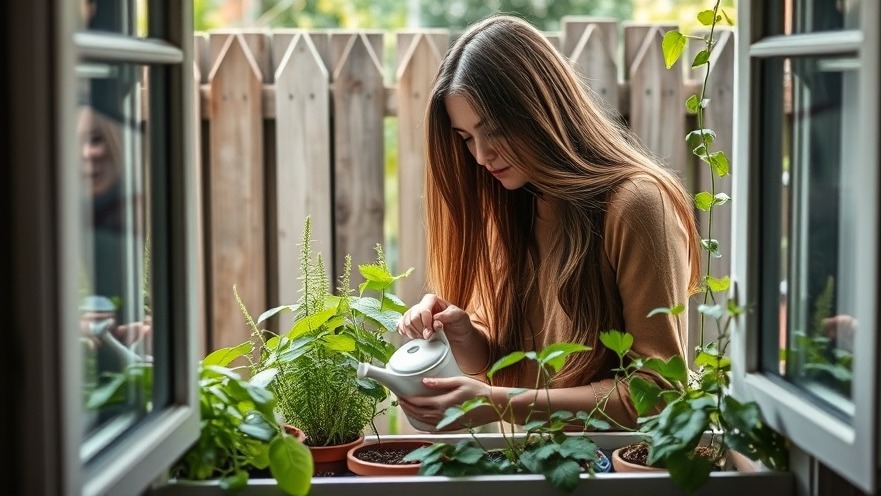
Unlock the Secret to Small-Space Gardening: A Transformative Trend
In a world increasingly dominated by urban landscapes and diminished green space, cultivating a garden—however small—has become a revolutionary trend that’s transforming not just our meals but also our mindsets. Small-space gardening symbolizes more than a home improvement choice; it’s an assertion of mindfulness and sustainability that invites us to reconnect with our food and the earth—qualities that many of us yearn for in our fast-paced lives.
Embracing Nature in Limited Spaces: The Benefits of Gardening
Living in smaller environments can feel confining, but introducing greenery into our homes can dramatically shift our emotional landscape. Research shows that having plants around can boost mood and productivity while lowering stress levels. A compact garden, even if contained to a windowsill, allows us to witness the miracle of growth, reminding us of the beauty of life and patience. This garden-to-table approach also emphasizes the importance of fresh ingredients, potentially enhancing our diet with vibrant flavors and essential nutrients.
Your First Steps: Starting a Windowsill Garden
Starting small is the mantra for many small-space gardening enthusiasts. A windowsill garden can yield a bounty of fresh herbs that enrich meals while enhancing kitchen decor. Basil, mint, chives, and thyme are excellent beginner herbs, each easy to grow indoors with minimal maintenance. Utilizing pots with drainage and quality potting soil can help ensure herbs thrive, even in limited light conditions.
For example, basil thrives in warmth and consistently moist soil, while mint does well in partial sunlight, making it a versatile addition to any small garden. These herbs not only add flavor to your dishes but can also spark creativity in meal preparation. Recipes like Super Greens Frittata or Herby Green Chickpea Falafel are excellent ways to incorporate homegrown ingredients.
The Future of our Food System: Why Small Gardens Matter
As we face challenges such as climate change and food insecurity, the rise of small-space gardening symbolizes a proactive approach to nurturing community resilience. Growing one’s food, even in urban pockets, fosters a greater understanding of food systems and sustainability. It also promotes local biodiversity, which is essential for a healthy ecosystem.
The small-space gardening trend aligns with a larger movement towards local sourcing and eco-conscious living. By invoking mindfulness in how we grow and prepare our food, we become more aware of our environmental impact and contribute more significantly to the fight against food deserts and poor nutrition.
Transforming Mindsets: Gardening as Therapy
Gardening is not just a physical activity; it offers tremendous mental health benefits. Engaging with plants can be therapeutic, providing a sense of accomplishment and a meditative escape from daily stresses. Whether nurturing seedlings or harvesting fresh herbs, the act of caring for a garden can ground us, allow us to practice mindfulness, and cultivate gratitude.
Moreover, sharing the fruits of your labor, whether in the form of a home-cooked meal or simply sharing tips with neighbors, fosters community spirit. It transforms our view of connecting with nature from a privilege to an accessible necessity.
Practical Tips for Small-Space Gardeners
To cultivate a successful small garden, consider the following practical tips:
Choose the Right Location: Aim for sunny spots in your home that receive at least 4–6 hours of sunlight per day.
Container Gardening: Invest in lightweight, well-draining pots that suit your limited space.
Routine Care: Regularly check for moisture and pest issues—make it a part of your daily routine to interact with your plants.
Join Gardening Communities: Engage with local gardening groups or online platforms that share your passion for small-space gardens.
As we embrace this small-space gardening trend, we not only foster sustainable practices but also revel in the small joys that come from cultivating our green thumbs.
 Add Row
Add Row  Add
Add 




Write A Comment